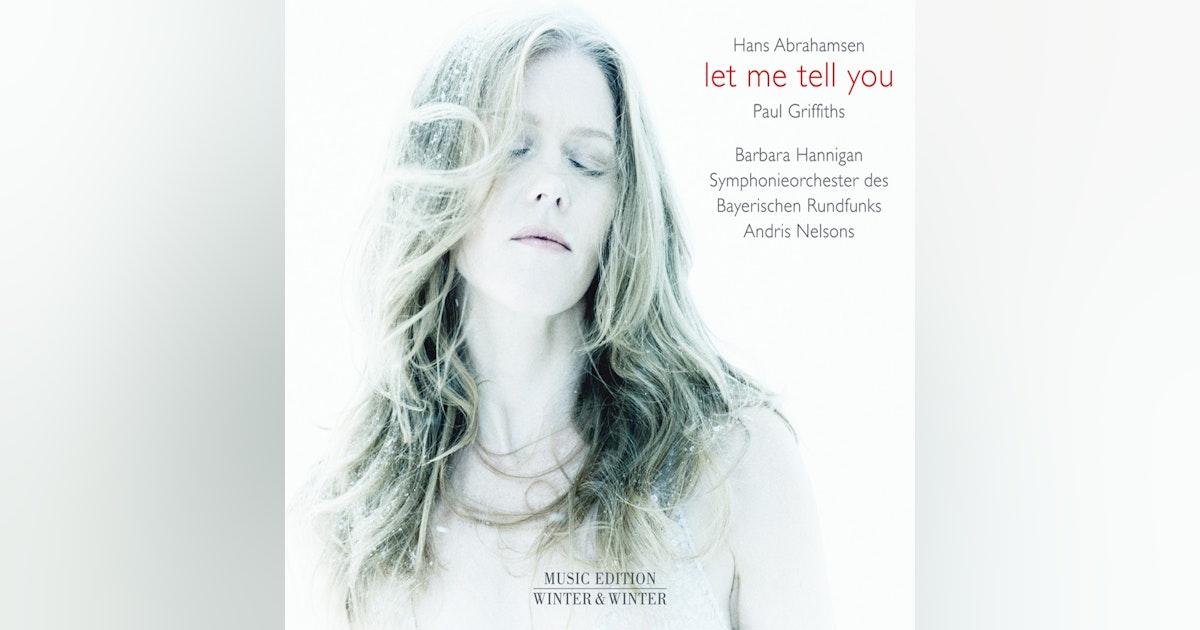Unforgettable Abrahamsen & Mahler from the London Philharmonic
Jennifer France stuns in Hans Abrahamsen's magical soundscape
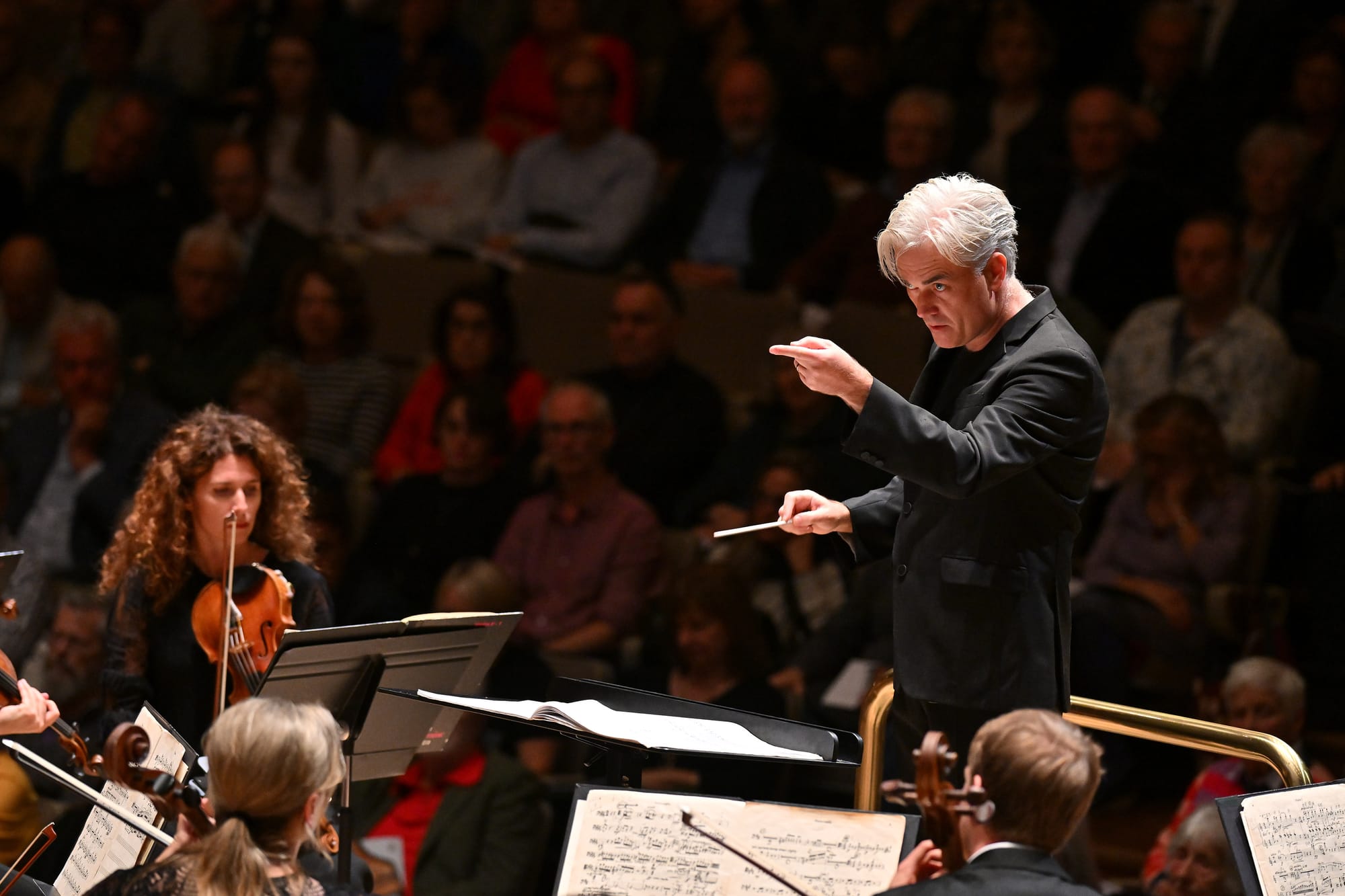
Abrahamsen, Mahler Jennifer France (soprano); London Philharmonic Orchestra / Edward Gardner (conductor). Royal Festival Hall, London, 03.10.2025
Hans Abrahamsen let me tell you (2013)
Mahler Symphony No. 4 in G (1900)
What wonderful programming; and an extra bonus to see Danish composer Hans Abrahamsen (born 1952) in attendance for his song-cycle let me tell you. Click here for this Wikipedia article, and see here for his page at the publishers Wise Music Classical.
Written in 2013, this piece has mostly been associated with Barbara Hannigan (who premiered it in December 2013 with the Berliner Philharmomiker under Andres Nelsons. There is a chain of authorship here for the dramatic text: Paul Griffiths’ 2008 novel of the same title is the source, which itself takes Shakespeare’s Ophelia (Hamlet) and allows her to tell her story.
The piece has links with Abrahamsen’s sequence of canons, Schnee (2006-08): do seek out the excellent Da Capo recording by the Lapland Chamber Orchestra conducted by John Storgårds. The opening melody of let me tell you is related to Canon Ib of Schnee (‘Fast imme rzart und still’). Schnee came after a break from composing in which Abrahamsen found a ‘new simplicity’. The idea of ‘white music’brings to mind exactly what we hear: sharp, icy, glassy textures (specifically the strings about half-way though the first song of part I). There are links to Monteverdi, specifically to vocal delivery (repeated notes especially). But Abarhamsen is his own man: we get not only the frozen sounds but majesty, too.
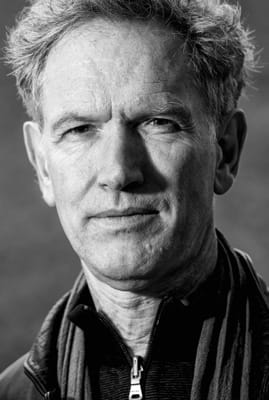
let me tell you has been associated with Hannigan since inception, and her 2015 recording (Bavarian Radio, so with the Bavarian Radio Symphony Orchestra and taken down in Munich’s Herkulesaal) remains impressive. Jennifer France made the piece her own, though: her voice is immediately beautiful, and if anything more agile than Hannigan’s. The words, and France’s delivery, cut to the quick: ‘My words will have to do’ she sings, underpinned by a rich trombone chorale. France’s diction was impeccable: the text was not in the programme, but was surtitled. We didn’t need even need that.
As to Abrahamsen, his sonic imagination knows no bounds. This seems to be set in a extra-temporal space: memory is a key concept here (‘O but memory is but one of many,’ the title of the second section of the first part), and exiting time somehow changes meanings and relativities. Modernist explosions are the exception, but they do appear in Abrahamsen’s score, as do surprisingly Romanic gestures and lines (there is something Zemlinskian about some passages of the second part). And at “you have sun-blasted me, and tuned me into light,” there was a sort of violent shimmering from the orchestra. Soon thereafter, France became just one strand of the ongoing texture, the whole luminous and quiet. Modernist carillons follow the quiet, miraculous ‘like a glass in which there are showers of light’. The LPO found superb darkness to the third part’s opening (‘I know you are there’). The Romantic idea of a valedictory leave-taking into the unknown suffuses the music (’I will go on ...’ seems to echo the repetitions of ‘Ewig’ from Mahler’s Das Lied von der Erde). Astonishing music.
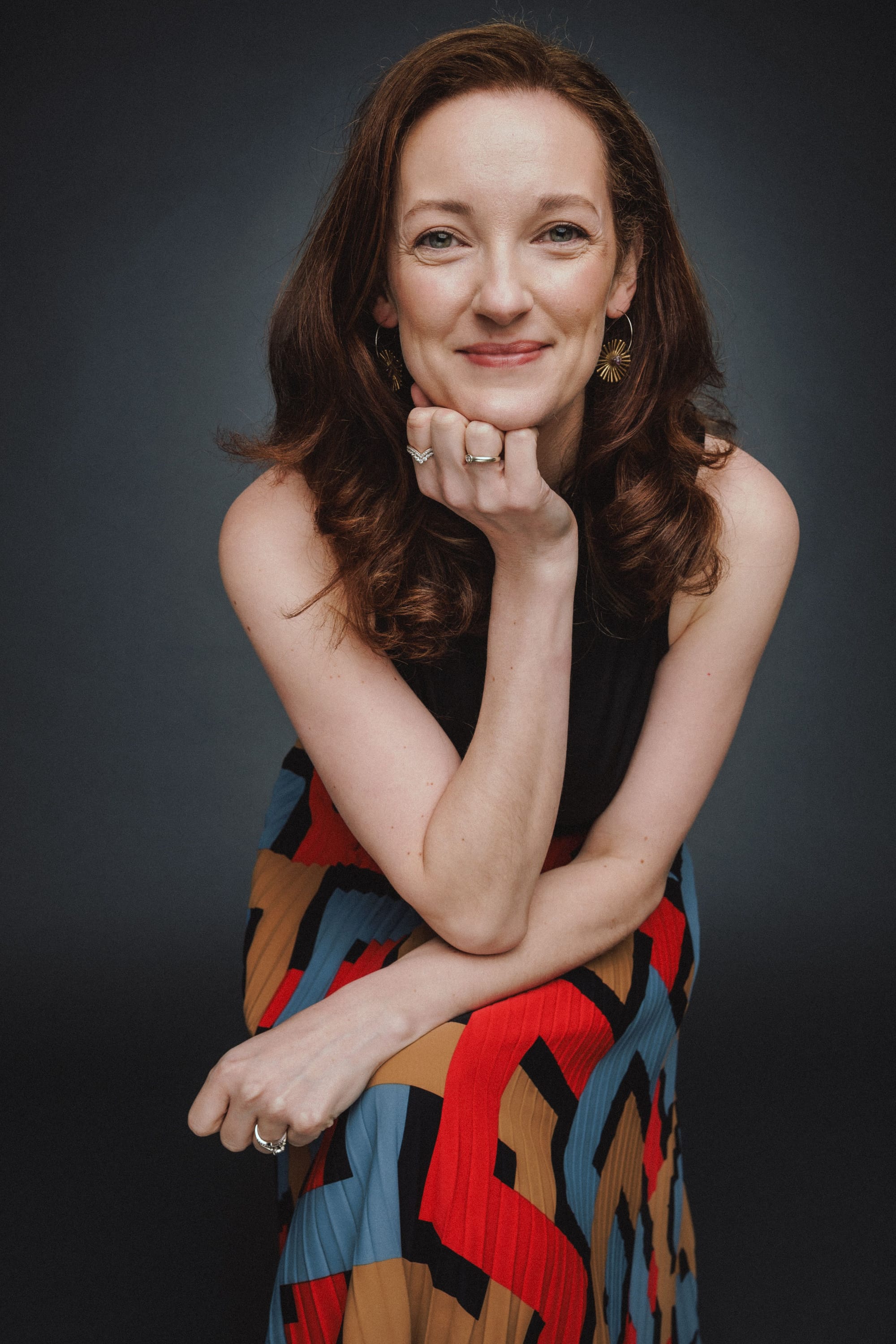
The concertation from the LPO was palpable; this performance mattered. It was Jennifer France’s triumph: very word counted, every part of every word registered, and her bond with the orchestra was strong indeed; Gardner marshaled the LPO to myriad subtleties of sound, seemingly in response. ‘I will go on’ France sang, against a rustling of paper on a bass drum.
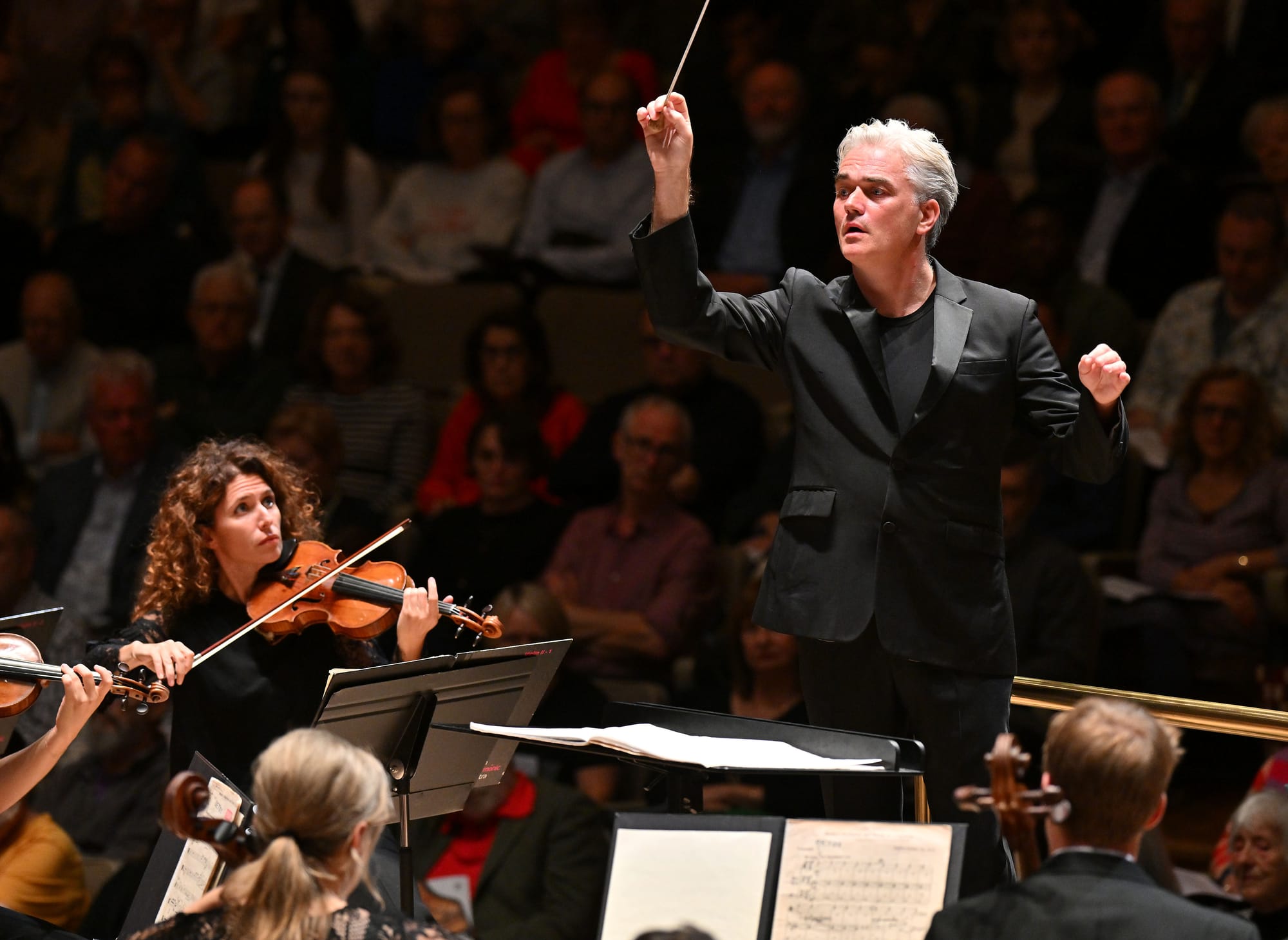
How to follow that? Another piece linked to Nature and the supernatural and therefore, a least in its finale and arguably in its third movement, supertemporal: Mahler’s Fourth Symphony, that finale set in Heaven. Gardner’s Mahler discography does not seem that large, but he has recorded the Mahler/Berio songs with Roderick Willims in Bergen for Chandos, and Bergen holds in its video concerts archive the First, Second and Eighth Symphonies (openly available on the web).
Gardner’s Fourth is characterised by attention to detail: in no other performance have I heard not only so much, but in no other have I been so aware of Mahler’s polyphony. This is intrinsically musical interpretation: the three-note fist violins anacrusis in the first movement, so often woefully distended, felt perfectly natural. Song was another aspect foregounded: this is after all a ‘Wunderhorn’ symphony, and how the cellos sang in the first movement. Shifts of tone colour via orchestration were honoured time and time again; it felt as if huge care had gone into the preparation. Leader Pieter Schoeman’s contributions were consistently superb, particularly but not only in the scordatura second movement. Woodwind accents but hard; in the second movement, their trills invited in the grotesque. With string ensemble beyond criticism and with a perfectly judged harmonic brightening, this neared perfection.
The third movement, merely marked ‘Ruhevoll’ (peaceful) moved: no Bernstein-like stasis here. Interestingly, Gardner left very little gap between second and third movements, as if the slow theme against pizzicato lower strings was the natural outgrowth of the Scherzo. special mention for the second violins, whose entry was the definition of perfectly timed loveliness. Again, polyphony was a core element; and, later, the metical modulation was perfect. If the big outburst was not quite apocalyptic, it certainly provided contrast for the finale. Here, again, Jennifer France’s voice seemed the perfect choice. She entered he stage after the third movement, and when she sang, her voice was pure, her slurs astonshingly clean. Her performance of the words ‘Sankt Peter’ (Saint Peter) was so crystal clear it sounded like an organ pipe. ‘Kein Musik is ja nicht auf Erden’ she sings, and so it sounded. An unforgettable close.
And yet it was the Abrahamsen that will linger longest. For all of the detail, there is an underlying nagging feeling that Garnder’s Mahler just needs to find the balance between that laudable knowledge of the score on an immediate level, and a larger sense of structure, of the vey vastness Mahler's music holds.
Follow this link fo Gardner's Bergen Mahler 8; Mahler 1 is here, and Mahler 2 here. Follow this link, which is to he entire Bergen achieve, which also includes a complete Parsifal, conducted by Gaedner, and with the bonus of Bradley Sherratt as Gurnemanz! (link; remember Sherratt's remarkable debut solo disc, Fear No More? , or his Harapha Samson at the Proms?; or his Sarastro Zauberflöte at Covent Garden?; or, talking of what is now RBO (Covent Garden), his part in the Rigoletto (DVD/Bluray)? So much to celebrate!
Sound link blow on adagio to Hannigan's Anrahamsen (Amazon here):
